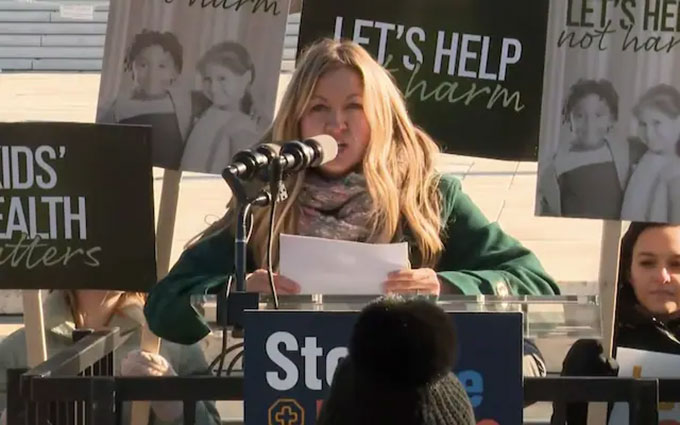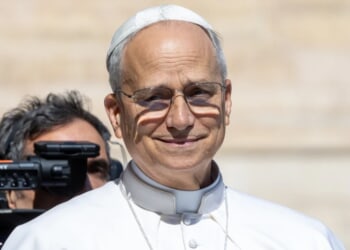The social contagion of gender confusion among American teenagers has been worsened considerably by educators. In many cases, school officials, most notably at public schools, have socially transitioned children, while deliberately concealing this information from parents.
One such case arose in Leon County, Florida (Tallahassee), where the school board established a comprehensive Lesbian, Gay, Bisexual, Transgender, Gender Nonconforming and Questioning Support Guide. That guide specifically instructed educators that they should not tell parents when a child announces a transgender identity, and that children have a legally protected right to keep from their parents information regarding their gender identity and any steps the district takes to affirm that identity.
Finally, a reason to check your email.
Sign up for our free newsletter today.
Operating on this guidance, administrators met secretly with January and Jeffrey Littlejohn’s 13-year-old daughter in the fall of 2020 to develop a “gender support plan” that allowed the child unilaterally to decide which name and pronouns to use, which restroom to visit, and with which sex she would lodge on overnight trips. The document also indicated that school staff would use a new name and “they/them” when referring to the child at school but would use the child’s given name and “she/her” when talking to her parents.
The Littlejohns sued in federal court, alleging violations of familial privacy and of their constitutional rights to direct the upbringing of their children and to make medical and mental-health decisions for them. The district court granted the defendants’ motion to dismiss for failure to state a claim upon which relief could be granted, and the U.S. Court of Appeals for the Eleventh Circuit affirmed in a 2-1 split decision.
The appellate panel held that even if the Littlejohns alleged that defendants intentionally violated their constitutional rights, they had to allege further that the defendants’ conduct “shocked the conscience.” That “shock-the-conscience” requirement, per the majority, doesn’t apply to challenges of legislative actions, but it does apply to all claims that executive actions—like those of school officials—violate fundamental rights.
The decision was admittedly in tension with at least three other circuit precedents, each of which says that plaintiffs may win by showing either that the executive officials’ conduct violated their constitutional rights or that it shocked the conscience, but not necessarily both. Though he joined the majority because he felt bound to do so, Judge Kevin Newsom called the outcome “totally bizarre.”

The Littlejohns are now seeking en banc (full court) review to argue that they stated a legally cognizable claim regardless of whether they independently showed that the defendants’ actions “shocked the conscience.” Their petition shows that a proper reading of both Supreme Court and Eleventh Circuit precedent doesn’t require conscience-shocking in cases alleging violations of fundamental rights. A holding to the contrary would create a senseless liability regime that imposes different standards based on which branch of government violates your rights. And it has caused an injustice here: the Littlejohns’ parental rights were violated by the school’s attempt to gender-transition their child without their consent.
The Manhattan Institute, having filed an amicus brief before the appellate panel, has now filed another brief supporting the en banc petition. We summarize medical research showing that social transition isn’t a neutral act but an active intervention. Accordingly, its use on children and adolescents in schools falls squarely within parents’ basic right to guide their children’s health care.
With the Department of Health and Human Services having just released a major report that raises serious concerns about hormonal and other medical interventions relating to gender, we should be careful about leading kids down that primrose path. And politicized school boards and taxpayer-funded administrators should be the last people we entrust with directing young people’s decisions that go far beyond educational or professional development.
Photo by David McNew/Getty Images
City Journal is a publication of the Manhattan Institute for Policy Research (MI), a leading free-market think tank. Are you interested in supporting the magazine? As a 501(c)(3) nonprofit, donations in support of MI and City Journal are fully tax-deductible as provided by law (EIN #13-2912529).
Source link

















